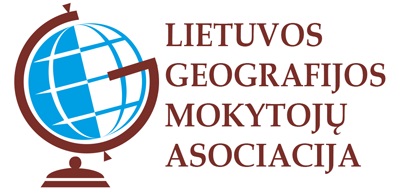Anglų kalbos 2008 m. valstybinio brandos egzamino testas (Use of English)
Klausimas #1
Part 1 (15 points, 1 point per item). For questions 1–15, insert the missing words. Use only one word in
each gap. There is an example (0).
WORLD’S LARGEST DIGITAL ORCHESTRA MAKES ITS DEBUT
The timeless world (0) of the orchestral instruments has finally been invaded by the
technological advance. The instrumental groups such (1) bands and
orchestras have given way to computers.
Fifty music students, (2) studied at York University, staged the first hitech traditional symphony last night by sitting (3) the concert hall floor and
playing nothing but laptop computers. As well (4) the
conducting novelties, these computers involved interaction, (5)
allowed each musician both to hear the others (6) to get quite
independent from the screen. Floods full (7) music filled the
building in York. Other music was activated (8) players making
hand movements which were filmed and turned (9) music by
the laptops’ inbuilt cameras. In one of three pieces specially written for the event, the
computers played (10) only classical music but also jazz
designed to ‘test the possibilities of digital sound’.
Although (11) of the works, written by Field and two
graduate students, was (12) impressive part of improvisation,
most of the music followed the traditional style. Musicians, who were dressed
(13) formal black, used Apple MacBooks. Field said, ‘This is
obviously innovative but (14) the same time we want to keep and
use the human interaction which is part of a symphony orchestra. The aim is to encourage
the audience to get to the place (15) technology is taking us.
Atsakymų variantai rodomi tik registruotiems sistemos eTest.lt vartotojams. Mokytojo registracija, mokinio registracija
Taškų skaičius už teisingą atsakymą: 15
Klausimas #2
Part 2 (10 points, 1 point for item). For questions 1–10, read the text below. Use the word given in capitals
to form a word that fits in the space in the same line of the text. There is an example (0).
OBVIOUS CHANGES
It’s not just your (0) imagination, (0) (IMAGINE)
the weather really is getting (1) (BAD) than ever.
It is obvious to the home (2) (OWN) of middle
England who have stood knee deep in their flooded sitting rooms. It has not escaped the notice of the (3) (RESIDE)
who live on Malibu beach.
Disasters are (4) (DRAMATIC) increasing in both frequency
and the (5) (STRONG) of the expansion into people’s
(6) (LIVE ) places along with the growth in effects.
Two experts, Andrew Buncombe and Daniel Howden,
give an (7) (EXPLAIN) why disasters are coming more furiously.
In this situation the researchers (8) (ADVICE) governments to take
more convincing steps in emission control.
That is the reason why the (9) (SCIENCE) blame
greenhouse gases for the temperature increases.
This year there have been (10) (USUAL) floods all over the world.
Atsakymų variantai rodomi tik registruotiems sistemos eTest.lt vartotojams. Mokytojo registracija, mokinio registracija
Taškų skaičius už teisingą atsakymą: 10
Klausimas #3
Part 3 (15 points, 1 point per item). Read a story about the experience of studies in a foreign country. For
questions 1–15, complete the gaps by putting the verbs in brackets in the appropriate form. There is an
example (0).
LEARNING A FOREIGN LANGUAGE
For Clare Griffith it (0) was (to be) one of the best times of her life. Although going
back to school for a month might (1) (not to be) everyone’s idea of a
holiday. The school was the British Institute of Florence and she was able to study Italian
while she (2) (to live) in one of the world’s most beautiful cities.
‘I would prefer to practise Italian through speaking and listening rather than
(3) (to learn) it through grammar rules’, she says. The greatest
progress tends (4) (to make) by those with a low to intermediate
knowledge of a language.
Griffith’s reasons for going (5) (to be) her love of Italy and her
increasing frustration with a language barrier that (6) (to mean) she
could not enjoy the country to the full. She said that some time ago she
(7) (to have) several attempts to learn Italian at night school. ‘Now I
(8) (to need) something much more intensive’, she says. She could
have stayed with a host family or in the accommodation (9)
(to provide) by the institute. The former would have been fine for an 18-year-old.
Parents sending their 17-year-olds for two weeks in a foreign city to build up to A-level
revision want their children (10) (to stay) with a host family, which
can be a learning opportunity in itself. If she had had to live in the family she
(11) (not to enjoy) it. She wasn’t worried about
(12) (to go) away on her own.
Now she (13) (to learn) Italian for a month. ‘Today I can
watch films and (14) (to read) books in Italian, but I miss speaking
it. Communication (15) (to become) more and more important
Atsakymų variantai rodomi tik registruotiems sistemos eTest.lt vartotojams. Mokytojo registracija, mokinio registracija
Taškų skaičius už teisingą atsakymą: 15





